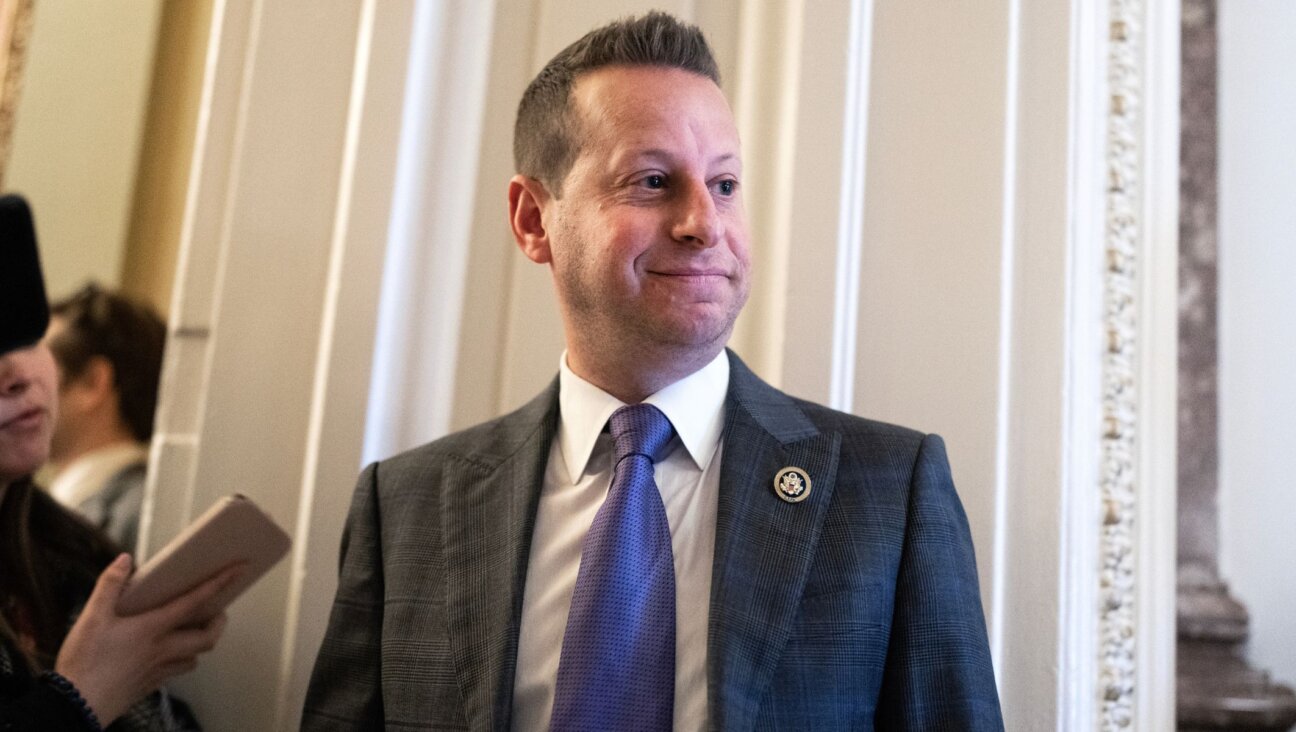All Worked Up, About All the Wrong Things
It is a puzzlement: How can a community so smart and sophisticated as ours so frequently overreact, under-react, be so off course? Three examples:
Among the best known and most highly respected historians of our time is Tony Judt, a professor at New York University and author of the lavishly praised, “Postwar: A History of Europe Since 1945.” Judt, who was born and raised in England (where, inter alia, he was national secretary of Dror, a Labor Zionist youth movement) waded into the Middle East cauldron with a major 2003 article in The New York Review of Books, wherein he argued quite vehemently for a binational state as the only acceptable solution to the conflict between Israel and the Palestinians. That article kicked up considerable controversy, eliciting more than a thousand letters to the NYRB and a devastating critique by Leon Wieseltier in the pages of The New Republic.
More recently, Judt has defended the controversial essay by John Mearsheimer and Stephen Walt blaming the “Israel Lobby” — and Aipac in particular — for a distorted American foreign policy. In an op-ed piece in The New York Times, Judt predicted that “it will not be self-evident to future generations of Americans why the imperial might and international reputation of the United States are so closely aligned with one small, controversial Mediterranean client state.”
On October 4 of this year, Judt was scheduled to talk to an organization that had used a room at the Polish consulate in New York. The talk was abruptly canceled after the Polish consul, Krzysztof Kasprzyk, received phone calls from the Anti-Defamation League and the American Jewish Committee. Both organizations contend that they did not ask that the talk be cancelled, but Kasprzyk told The Washington Post that “the phone calls were very elegant but may be interpreted as exercising a delicate pressure. That’s obvious — we are adults and our IQs are high enough to understand that.”
Now, while it is true that to call for a binational state is, in effect, to call for an end to the Jewish state per se, and may charitably be thought hopelessly naive, it is also true that the ADL/AJC intervention can only have had the aim of blocking Judt’s talk. In a recent issue of the NYRB, 114 intellectuals (including Leon Wieseltier) published an open letter to the ADL expressing their dismay that “an organization dedicated to promoting civil rights and public education should threaten and exert pressure to cancel a lecture by an important scholar.”
Does not the ADL/AJC intervention give credence to the Mearsheimer-Walt argument that the “Israel Lobby” is a heavy-handed bully that seeks to stifle serious debate? For that reason, if for no other, it was a foolish intervention.
United Jewish Communities, during and after the Hezbollah assault this summer, allocated funds to help in reconstruction in Israel’s north. Some of those funds went to Arabs, who make up roughly 20% of Israel’s citizens and an even higher percentage in the north, where the damage occurred. After one fossilized organization, Americans for a Safe Israel, objected, some others joined in the protest. They were soundly and appropriately rebuffed by John Ruskay, CEO of the UJA-Federation of New York. And Ze’ev Bielski, chairman of the Jewish Agency, made it clear that his organization is concerned with all Israelis. All of this is because UJC, the umbrella organization of the federation movement, allocated what it said was almost 3% of its Israel-bound dollars to Arabs.
Almost 3%? As Aryeh Cohen, who teaches rabbinic literature at the University of Judaism, wrote in a letter to this newspaper, 3% is hardly something to brag about. We must, he added, learn “to relate to Israel as a liberal democracy with obligations toward all its citizens and to demand of Israel to fulfill those obligations.” The promise of Israel’s Declaration of Independence requires something more than a stingy tip to the citizens/strangers in the Jewish midst.
Rob Eshman, the very able editor of The Jewish Journal of Greater Los Angeles, observes in his editorial of October 27 that American Jewish organizations have been remarkably mute on the issue of Israel’s lavish use of cluster bombs during the summer war in Lebanon. Eshman is quite right. Although a detailed article on the subject (entitled “Deadly Remnants”) appeared in The Jerusalem Report of November 12, and the matter has been discussed openly in the Israeli press, in America, so far as the Jewish community is concerned, the fact that upwards of a million as-yet unexploded Israeli “bomblets” litter the Lebanese countryside isn’t worthy of mention. (As of last week, 20 civilians have been killed and 123 wounded since the cease-fire.) The Israeli army has not adequately explained the military necessity of the cluster munitions; its statements on the matter have insisted only that the weapons are legal. Now, it turns out, Israel has cluster bombs of its own manufacture that have a failure-to-explode-on-impact rate of between 1% and 2%. But instead of using these, Israel purchased American cluster bombs, many from aging stock, with a failure rate of about 40%. Nor has there been much mention in the Jewish community of Israel’s admitted use of phosphorous bombs.
We see such things, we hear them, but we do not speak of them. If we don’t speak of them, maybe they will go away. But they won’t. Only Israel’s credibility — and ours — will. “Transparency” and “accountability” are this season’s buzzwords. We could use some ourselves, and good sense, too.
A message from our CEO & publisher Rachel Fishman Feddersen

I hope you appreciated this article. Before you go, I’d like to ask you to please support the Forward’s award-winning, nonprofit journalism during this critical time.
At a time when other newsrooms are closing or cutting back, the Forward has removed its paywall and invested additional resources to report on the ground from Israel and around the U.S. on the impact of the war, rising antisemitism and polarized discourse.
Readers like you make it all possible. Support our work by becoming a Forward Member and connect with our journalism and your community.
— Rachel Fishman Feddersen, Publisher and CEO























